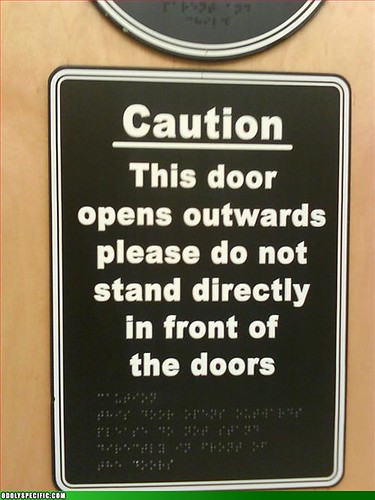Sometimes I have a hard time thinking of anything to say here. In large part because it still feels, to me, that writing anything here is an act of such unimaginable daring that I should immediately take down everything I’ve already posted and get to work scrubbing cached files of any mention of my name.
I’ve noticed that it’s very difficult for me to talk about my actual experiences with disability here. The things I’ve felt, the things that posed obstacles. It’s a lot easier for me to talk about disability issues that could potentially apply to me, but which I’m not currently experiencing. The difficulties I would have were I forced to get care and treatment through government health programs in the US. The near total lack of options and assistance that would be available to me in places like Rwanda or Cambodia. But not the problems that I’m dealing with right now. Not the way stigma is affecting me this week.
Both of those kinds of writing are deeply rooted in my own experiences with disability. When I think about policy problems, I always imagine how I would be treated, how my symptoms and impairments would have prevented me from accessing the benefit in question. But when I talk about the policy, I can highlight those issues and problems (sometimes a person with depression can miss a scheduled appointment for disability-related reasons) without having to share the personal details behind it (the time I missed a class that was being held literally 20 feet away because I could not get out of bed during the midst of a major depressive episode).
I don’t trust the general discourse enough to feel safe putting my stories out there (specifically, the people who can Google, the commenters who don’t get through mod, the Tumblr reblogs). Enough of the world can still use these things as weapons that I do not want to give them any ammunition. This position is one I’ve come to through direct experience of people I’ve respected and trusted throwing things back in my face. And not just friends – I’ve had specific professional repercussions directly related to my disability status. Again, sharing more details about that would make it a more relevant and compelling story, but it would also exponentially increase my potential vulnerability to increased or future problems of the same nature.
So why is it my responsibility, as the already vulnerable person, as the PWD, to expose myself further, to hand people the tools they will then use to attack me? Is the value that PWDs add to discourse solely in sharing the intimate details of their hopes and fears, their catastrophes and failures? Is discussion based on but not including personal details inherently less powerful?
I feel like I’ve taken a major step identifying as a PWD. I am unwilling to empty myself in front of people in order to convince them to care.

